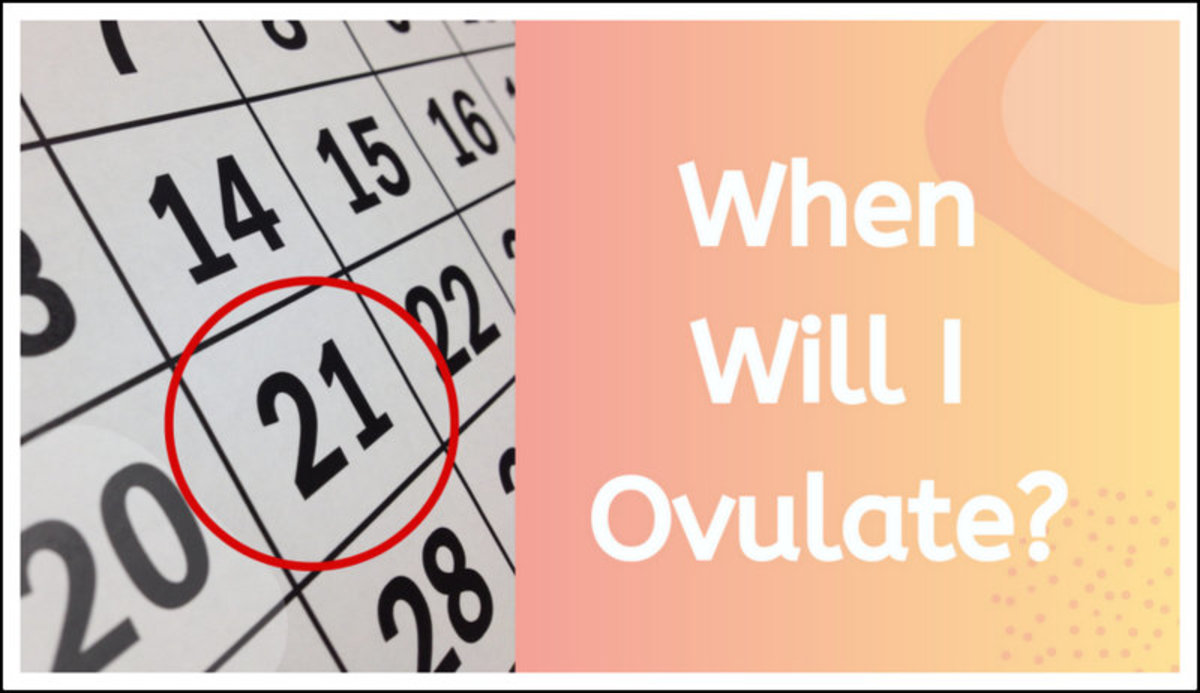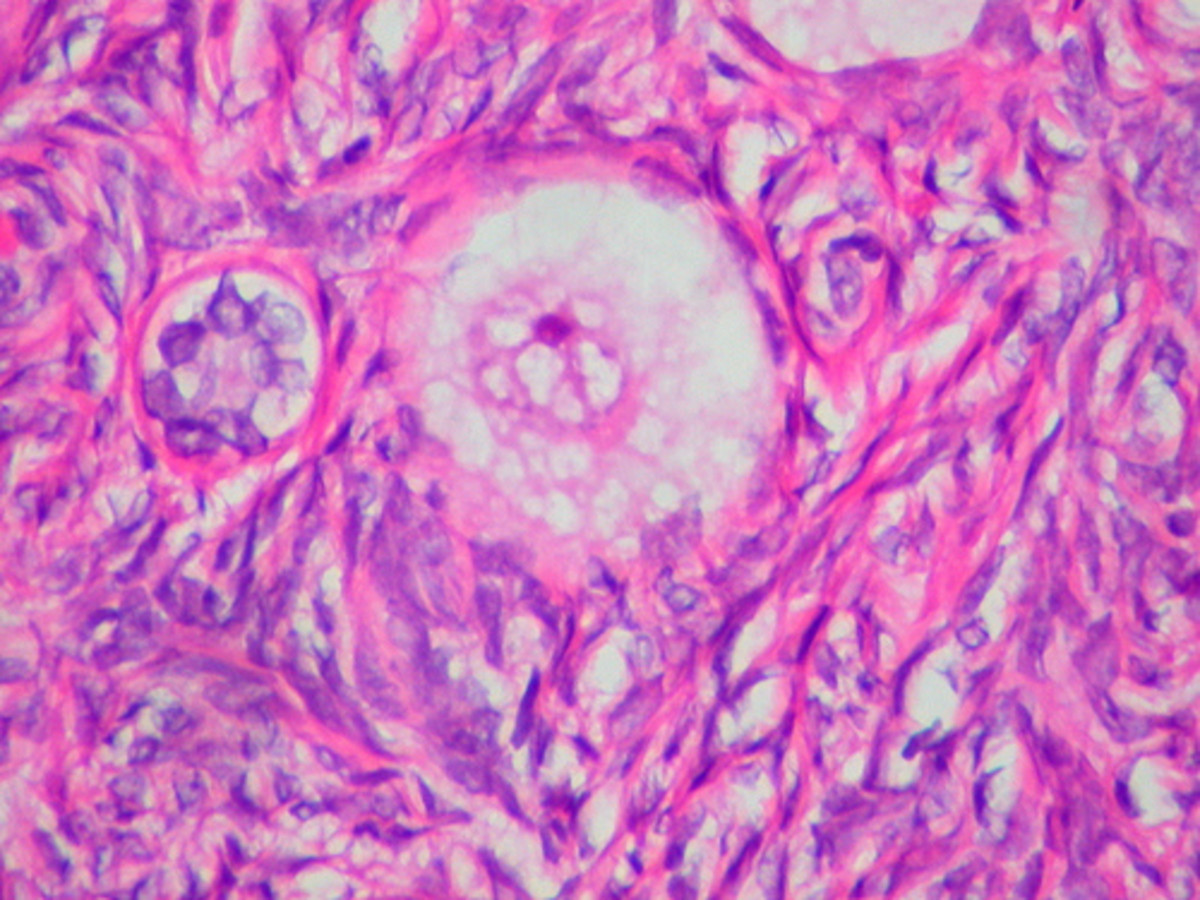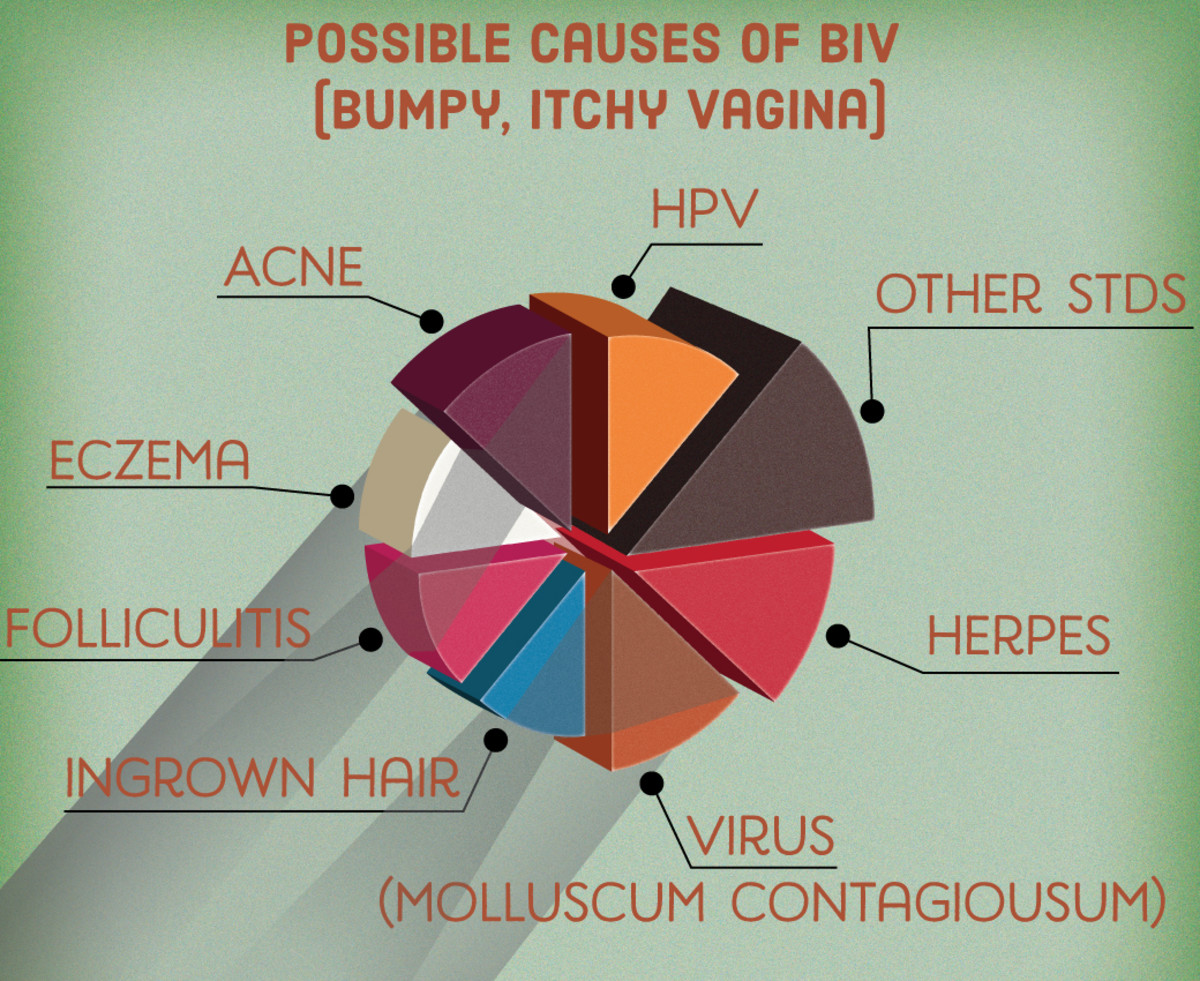Can You Ovulate and Not Have a Period?
I'm going to assume that since you here you have some idea how the female reproductive cycle works. If not you should go read this first When Do I Ovulate?

What is Ovulation?
Ovulation is when a mature egg is released from the ovary, pushed down the Fallopian Tube, and is ready to be fertilized.
Can You Ovulate and Not Have a Period?
Generally, this is not the case. In order for your body to have a true menstrual period it must go thorough an intricate process. To learn about the reproductive process, including hormones, chemistry, and bodily functions see: Menstruation and the Menstrual Cycle.
However, if your cycle is not normal, you may indeed have ovulated and became pregnant. This would be the only exception to ovulating and "not" getting a period.
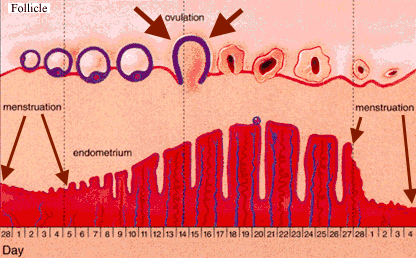
Medications that may interfere with ovulation
- cortisone
- prednisone
- some blood pressure medications
- tranquilizers or seizure prevention medications
- thyroid medications
- Sporadic use of oral contraceptives
*Remember your body is not the same as everyone else's. Medications may or may not affect you. Talk to your Dr. if you are concerned your medications are interfering with your menstrual cycle.
Can You Have a Period with No Ovulation?
Yes.
Theoretically, bleeding from your vagina at any point doing your cycle could be mistaken for a period.
Your body is a fine-tuned machine. It will attempt to go through the motions it should; IE. gearing up to ovulate. Then for whatever reason fail to follow through with the complete process.
Some common reasons for interrupted ovulation include:
PCOS
- Stress
- Weight gain/loss
- An anovulatory bleed (the shedding of built-up lining)
- Other hormones or intense activity that can change your body chemistry
- Certain medications may also interfere with the process of ovulation
My Doctor Says I'm Not Ovulating But I have a Period Every Month...
The bleeding that occurs from your body after a non-ovulatory cycle is not considered to be true menstruation. This bleeding is caused by the build-up of your uterus in anticipation of a pregnancy. Your body may get stuck at any transition of the menstrual cycle and cause a build-up of uterine lining. Eventually, this build-up must shed and is often mistaken for a true period.
*If you have not had a period in 3 or more months it is imperative that you speak with your Dr. He can help you induce a menstrual bleed and hopefully "jump-start" your cycle.
How Can I Tell If I'm Ovulating?
A positive pregnancy test would guarantee that ovulation occurred. The birth of a child would also guarantee that ovulation occurred. Without ovulation, neither of these instances would be possible. But chances are good you wouldn't be reading this article if either one of those instances occurred.
There are many tools you can use to gain insight into your bodies menstrual cycle. If you still need answers, fortunately, your doctor has relatively easy tests at his disposal to help.
Menstrual Cycle Tracking Apps
You probably won't be surprised to learn there are many many mobile apps available to you to help track your bodies ovulation or lack thereof. Most of them have a free basic service and for a small amount, you can unlock premium features - if need be. Check them out:
If mobile apps aren't your thing there are also many websites available to help you monitor your mentraul cycle.
Websites To Help Record Cycle Changes
Cervical Mucous Changes
Your cervical mucus, the white milky discharge that should happen mid-cycle (some woman notice discharge their whole cycle but a change is a consistency is key) is a clue to your fertility. If your cervical mucus is thin, watery, and stretchy you should be most fertile. Thin, stretchy, cervical mucus gives the sperm an obstacle-free highway to travel into while being nourished along the way.
When you are not in your fertile window the mucus you notice may be pasty or sticky.
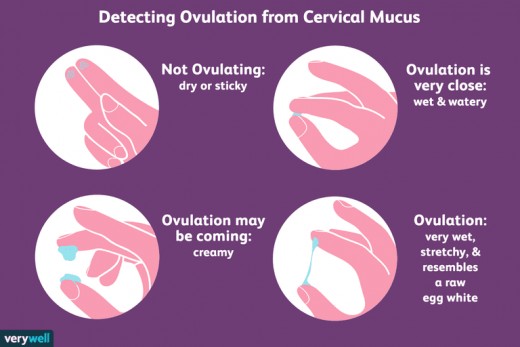
Your Basal Body Temperature
You can also track your basal body temperature (BBT), at home, to see if your body goes through the hormonal processes needed to ovulate. Any dramatic shift in your temperature can clue you into hormonal shifts and indicate your body is following a pattern. However, a BBT chart that shows a temperature shift does not necessarily mean an ovum (egg) was successfully matured or released. It just means your body is going through the proper motions, which is always a good thing.
No Doctor is needed for this ovulation monitoring. For more on charting your BBT see: Basal Body Temperature.
What Are Ovulation Tests?
At-home ovulation tests use your urine to dictate whether a certain hormone (luteinizing hormone) is released. A positive ovulation test signals ovulation should happen within 24-48 hours. Ovulation tests claim to be 99% accurate, when used correctly, by women who have a normal cycle.
Every ovulation tests comes with it's own set of instructions. Be sure to read and follow your tests instructions carefully.
When To See Your Doctor.
Remember your Dr. will be able to give you a complete picture of your menstrual cycle better than any internet article will ever be able to. If you've tried everything available to you and your partner at home. Or have special circumstances that warrant a trip to your Dr. do not hesitate to do so. Many at-home things can be indicative of ovulation, but without a viable pregnancy to show for it at home tests and/or procedures should never be a substitute for complete Dr. monitoring.
© 2015 Rebecca Fiskaali




